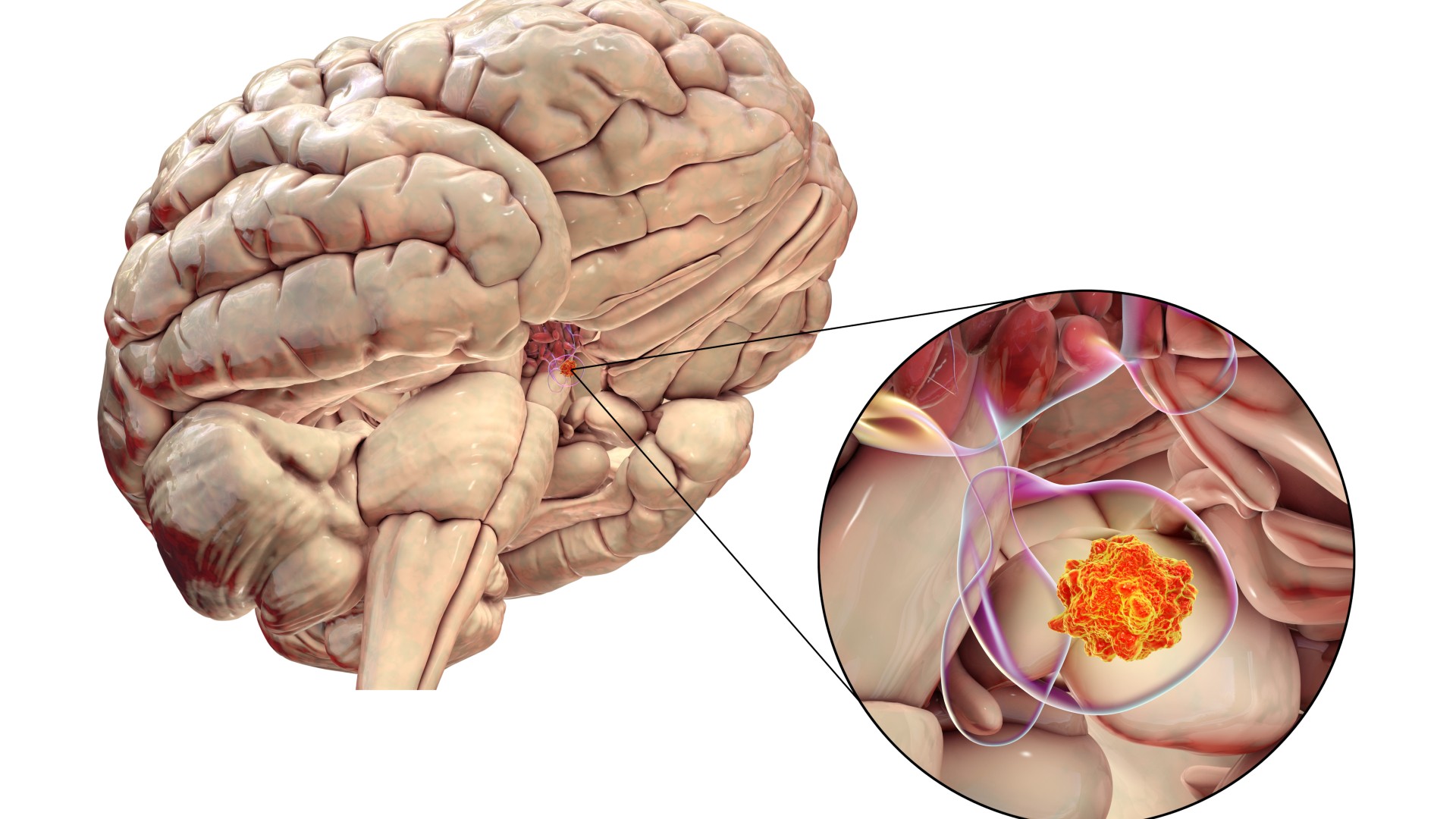
Affected populations: Acromegaly is estimated to affect approximately 50 to 70 people out of every million. However, the true figure may be higher, as the symptoms develop slowly and thus may go unrecognized. Males and females are equally likely to be affected by the disorder.
Causes: Acromegaly occurs when the pituitary gland, a small hormone-making structure in the brain, produces too much growth hormone for a long period of time. This hormone normally regulates the physical growth of the body, including the growth of bones and muscles.
In most cases of acromegaly, this excessive growth hormone production stems from a noncancerous tumor in the pituitary gland. However, in rarer instances, the disease can be triggered by tumors elsewhere in the brain or in other parts of the body, such as the lungs or pancreas. These tumors either produce growth hormone themselves or make another substance, known as growth-hormone-releasing hormone, which, in turn, prompts the pituitary gland to make more growth hormone.
Some genetic conditions can cause acromegaly. For instance, multiple endocrine neoplasia type 1 and Carney complex are two rare disorders that increase people's risk of developing tumors in hormone-producing glands.
Related: Have giant humans ever existed?
Symptoms: Symptoms of acromegaly usually begin sometime after puberty, most commonly between the ages of 40 and 50. The disease causes a person's bones to enlarge — most notably, in the hands, face and feet. Characteristic features in the face include a disproportionately large nose, tongue or jaw, and lips. Elsewhere in the body, patients may develop thicker body hair and skin, experience joint pain, and sweat more than usual. They also may experience headaches, a loss of vision and irregular periods in those who menstruate. Other organs, such as the heart, may also enlarge.

If left untreated, acromegaly can cause a variety of health issues, including type 2 diabetes, high blood pressure, sleep apnea (when people temporarily stop breathing during sleep) and heart disease. It may also reduce someone's life expectancy by around 10 years.
Acromegaly is often confused with gigantism, another rare condition that causes excessive growth as a result of high levels of growth hormone production. However, unlike acromegaly, gigantism begins during childhood.
Treatments: There are several treatment options for acromegaly, depending on the size and location of the tumor behind the disease, the severity of a patient's symptoms, their age and their general health. Surgery and radiation therapy can be used to remove or shrink a tumor, while drugs can help reduce the levels of growth hormone that circulates in the body or stop the hormone from exerting its effects on tissues.

Acromegaly is curable in some cases. In patients who have a small pituitary gland tumor that can be removed via surgery, the disease can be cured 85% of the time. For patients with large-but-removable tumors, it can be cured between 40% and 50% of the time. Unlike surgery, drugs can't cure the condition, but they can help control patients' symptoms.
Ever wonder why some people build muscle more easily than others or why freckles come out in the sun? Send us your questions about how the human body works to community@livescience.com with the subject line "Health Desk Q," and you may see your question answered on the website!







